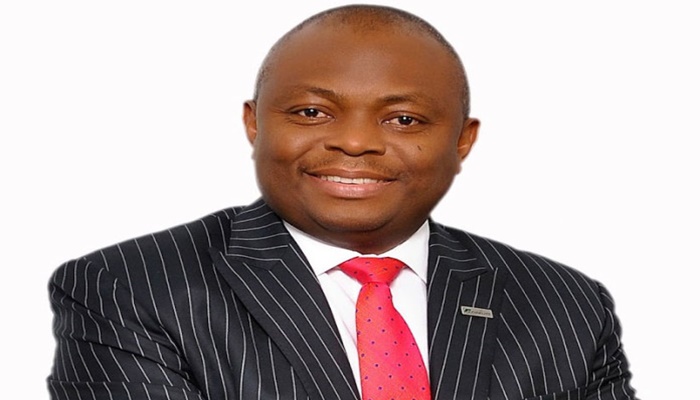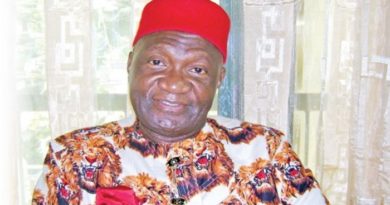Fidelity Bank expects profit to rise by 30% 2017
• Improving dollar supply boosts trade business, executive says
• Recession constrains bank lending, drives up bad loans
Fidelity Bank Plc expects profit to rise by 30 percent this year as it benefits from investments in high-yielding Nigerian government debt and improving supplies of foreign exchange, even after the country’s economy declined for the first time in 25 years.
Fidelity is able to buy Nigerian 10-year bonds that yield more than 16 percent, the second-highest among local-currency government debt in 31 emerging-markets tracked by Bloomberg. Together with purchases of 12-month Treasury bills, with yields at five-year highs of almost 19 percent, the bank estimates the investments will help it increase 2017 pretax profit to about 20.5 billion naira ($67 million).
“The money we generate from liabilities will be quite bullish from a fixed-income perspective, because the yields are very good,’’ Gbolahan Joshua, chief operations and information officer for Fidelity Bank, said in an April 26 interview at the lender’s headquarters in Lagos, Nigeria’s commercial hub.
Banks in Africa’s most populous nation have an increased appetite for government securities, because of attractive yields, while they have a reduced incentive to lend to businesses, Moody’s Investors Service analyst Akintunde Majekodunmi said April 5. Yields on Nigeria’s government bonds are exceeded only by Egypt among emerging markets, the Bloomberg data show.
Nigerian lenders have pared back the pace of loan growth after a slump of more than 50 percent in oil prices since mid-June 2014 cut government revenue and a shortage of dollars hobbled companies’ ability to import raw materials. Non-performing loans as a percentage of overall lending climbed to 14 percent at the end of December from 11.7 percent at the end of June, the central bank said earlier this month, as the economy shrank in 2016 for the first time since 1991.
Fidelity Bank, the seventh-largest by value of the 10 lenders in the local bank industry benchmark index, saw NPLs rise to 6.6 percent by the end of December from 4.4 percent in 2015. The bank targets reducing this to 5 percent this year, Joshua said. Fidelity shares have dropped 2.4 percent this year, compared with a 3.7 percent gain for the banks index.
An increasing supply of dollars should help Fidelity reduce its non-performing debt, he said. The central bank increased sales of greenbacks to banks in late February and transactions in the currency market rose by a half to $9.72 billion in March compared with the preceding month, according to the FMDQ OTC Securities Exchange, the nation’s foreign-exchange trading platform.
The central bank also introduced a foreign-exchange window for portfolio investors on April 24, which, in a bid to attract dollar flows in to the economy, Governor Godwin Emefiele said will have an exchange rate determined by the market.
“From a foreign-exchange perspective, the liquidity in the market has been far more positive,” Joshua said. “It has increased the volume of trade transactions that we are able to do. This year, we see opportunities from higher availability of foreign exchange, an inflation rate that is coming down and government revenues that have increased.’’
Source: Bloomberg.




